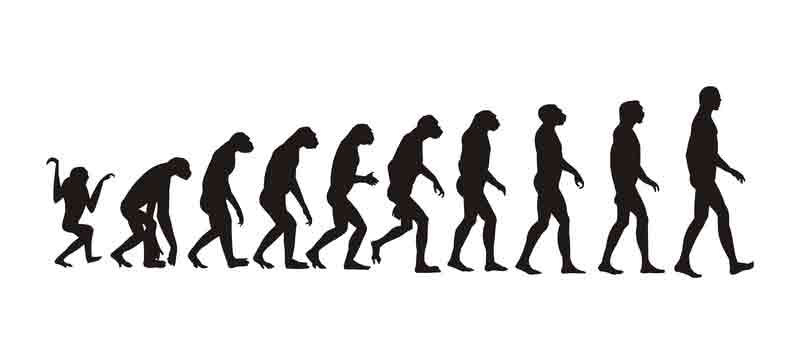Human Family Tree Now a Tangled, Messy Bush

For anthropology students 30 years ago, learning human evolution was a breeze. It went from Australopithecus to Homo habilis to Homo erectus to various Homo sapiens. It was a straight shot that one could learn in a few minutes late at night while cramming for an exam.
But in the late 1970s, we entered a golden age of human fossil discoveries that has repeatedly punched holes in the naive idea that our evolution would be that clear, clean, and straight.
Like most animals, humans have a checkered past, and our family album is now full of side branches and dead ends. And it's populated with creatures, such as the little people (Homo floresiensis) of Flores Island in Indonesia, that we could never have imagined in our wildest dreams.
The straight line has blossomed into a spreading, rather uncontrolled bush and we don’t like it. We want our history to be nice and neat, but the fossils keep messing us up.
This summer, scientists announced the discovery of two human fossils found in Kenya in 2000. One is a 1.44 million-year-old Homo habilis, the first member of our genus, and the other is a 1.55 million-year-old Homo erectus, a larger brained, much more sophisticated kind of human.
Although paleoanthropologsts have assumed that habilis evolved into erectus, it looks like these creatures spent time together on the shores of Lake Tanganika.
The big news, then, is that these very different fossils are being hung on the human family tree on separate branches but at the same height. And once again, we have to reconsider the path of human evolution.
Sign up for the Live Science daily newsletter now
Get the world’s most fascinating discoveries delivered straight to your inbox.
But should we be all that surprised?
We want the first bipedal humans to stay out of the trees, but their curved hand bones suggest they spent time swinging in the canopy like apes; we want brain size to increase in lock step with tool use, but tools appear before big brains; we want an orderly diaspora out of Africa and across the globe by culturally armed early humans, but it looks like people kept leaving all the time in fits and starts that don’t correlate with anything; and we want the last 200,000 years of human evolution, the time when modern Homo sapiens appeared, to make some kind of sense, but it doesn't.
Of course it doesn’t.
We are, after all, animals that have experienced the quixotic touch of evolution by natural selection, and that's anything but an orderly process.
Our past is just as messy as any animal that's been around for millions of years, and we should be prepared to expect the unexpected when the next fossil is announced.
Meredith F. Small is an anthropologist at Cornell University. She is also the author of "Our Babies, Ourselves; How Biology and Culture Shape the Way We Parent" (link) and "The Culture of Our Discontent; Beyond the Medical Model of Mental Illness" (link).
- Top 10 Missing Links
- The Top 10 Intelligent Designs (or Creation Myths)
- Gallery: Darwin on Display










